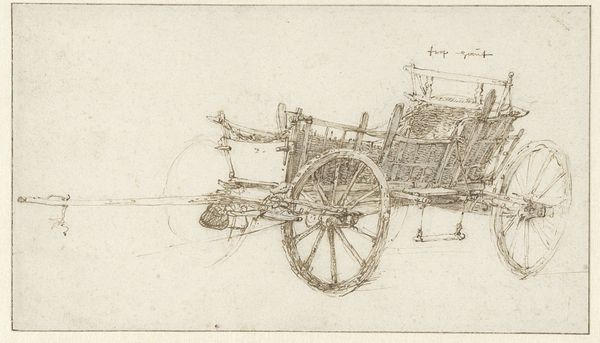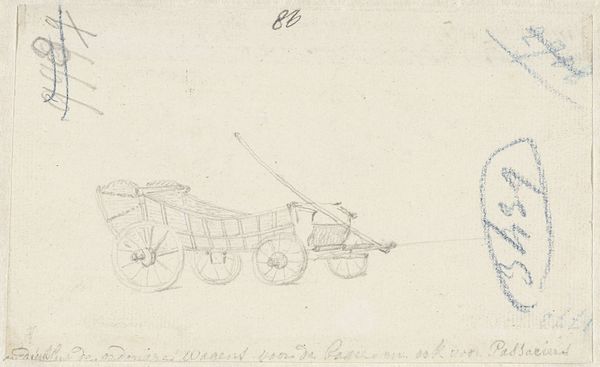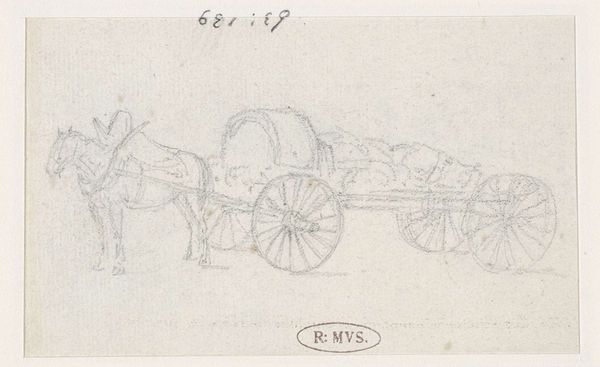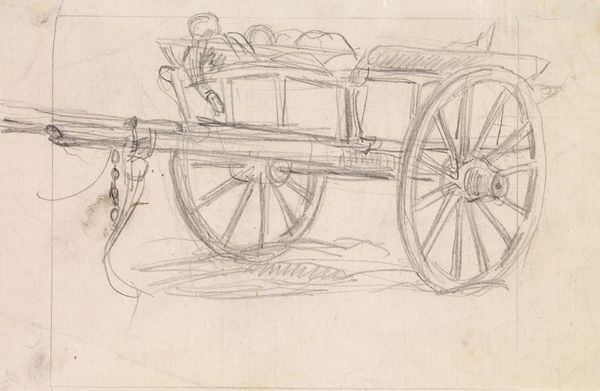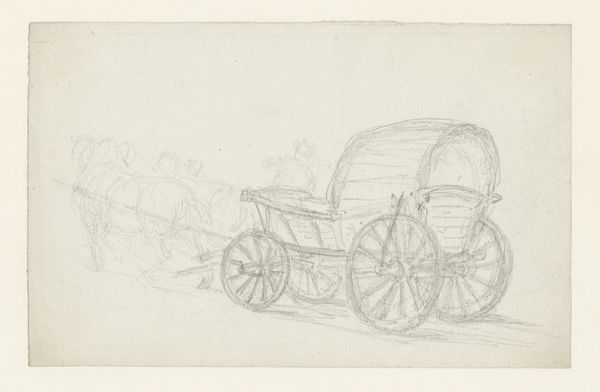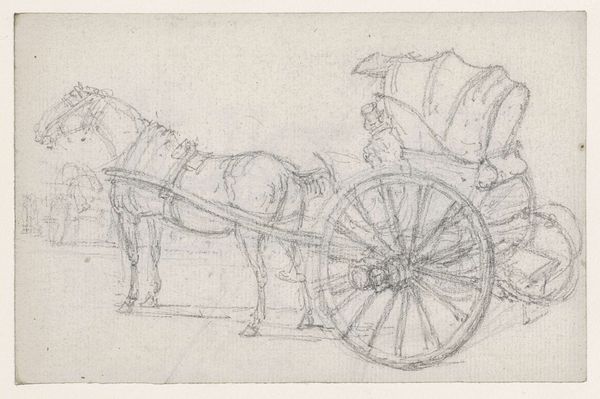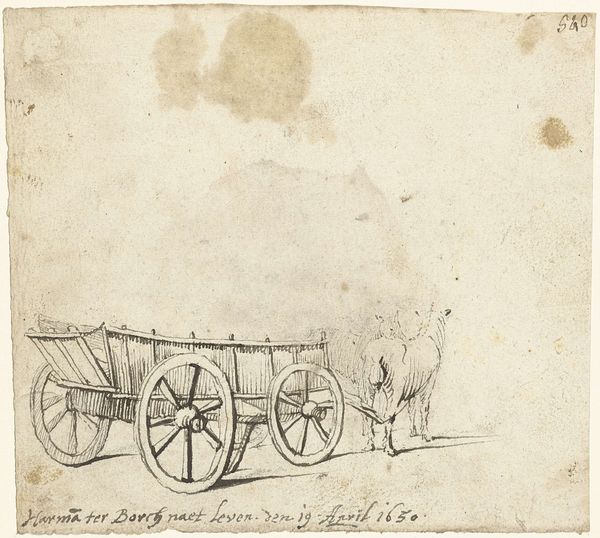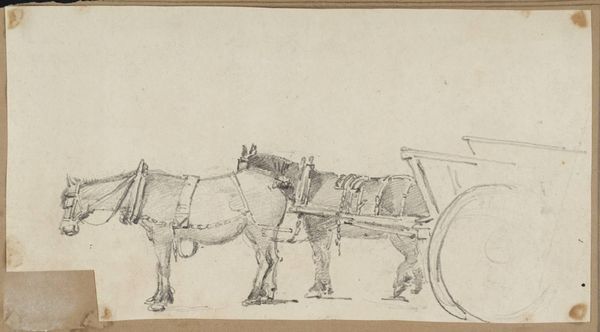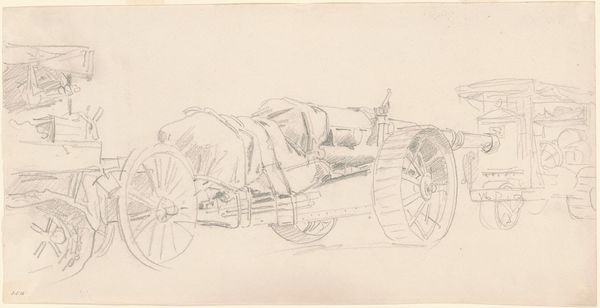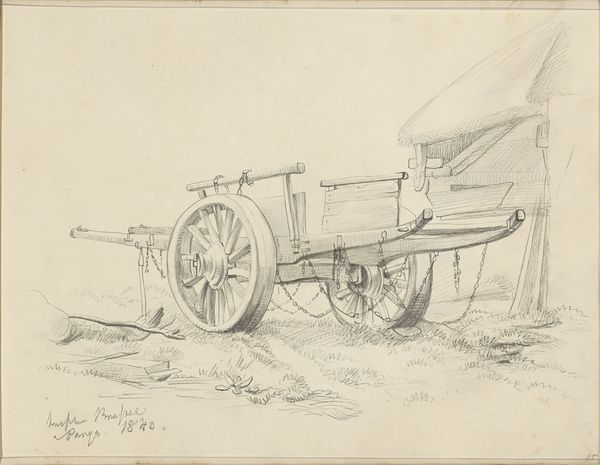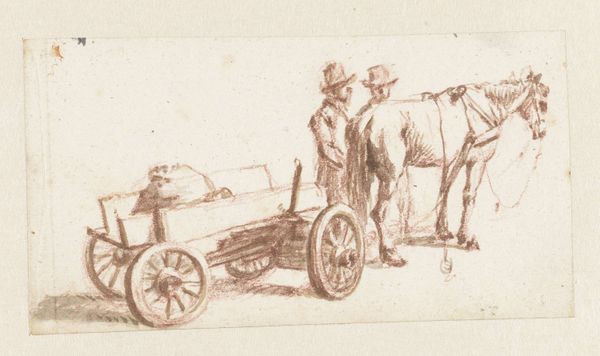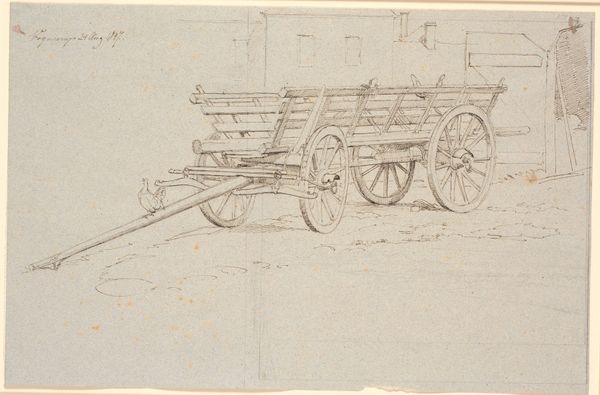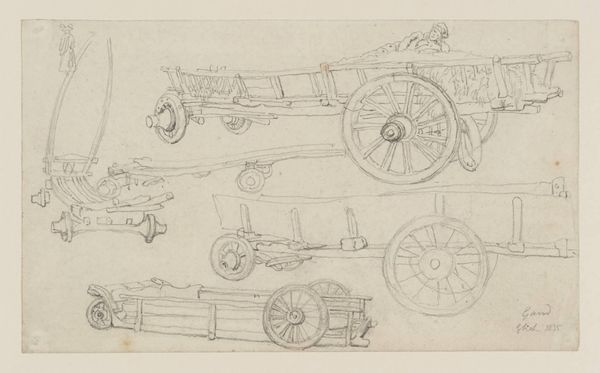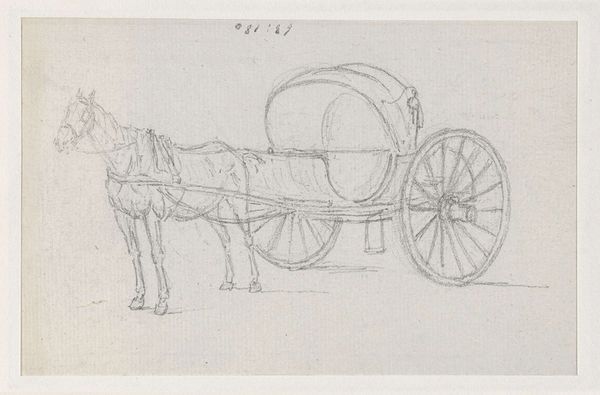
Reiskoets waarmee Aert Schouman en de heer Hoet in Duitsland zijn geweest 1720 - 1792
0:00
0:00
aertschouman
Rijksmuseum
drawing, paper, pencil
#
drawing
#
aged paper
#
light pencil work
#
quirky sketch
#
baroque
#
sketch book
#
landscape
#
paper
#
personal sketchbook
#
idea generation sketch
#
sketchwork
#
pencil
#
sketchbook drawing
#
genre-painting
#
storyboard and sketchbook work
#
sketchbook art
Dimensions: height 96 mm, width 160 mm
Copyright: Rijks Museum: Open Domain
Aert Schouman made this pencil drawing of a carriage whose title translates as "Travel carriage with which Aert Schouman and Mr. Hoet traveled in Germany” while in the Netherlands sometime in the 18th century. This type of image gives us insight into the social and economic structures of the time. Carriages like this were a symbol of wealth and status, representing the ability to travel and engage in commerce or diplomacy. The fact that Schouman, an artist, was traveling with a "Mr." suggests a patron-client relationship, which was common at the time. Wealthy patrons would often fund artists' travels in exchange for their services. Consider the institutional history that made this trip possible. The Dutch Republic was a major economic power in the 18th century, with a vast trading network. It’s important to ask whether the journey was connected to the infrastructure of Dutch trade or the country’s diplomatic efforts. The drawing then becomes more than just a depiction of a carriage but a representation of the complex social and economic forces at play in 18th-century Europe. To understand it better we can consult travel journals, trade records, and biographical information.
Comments
No comments
Be the first to comment and join the conversation on the ultimate creative platform.
